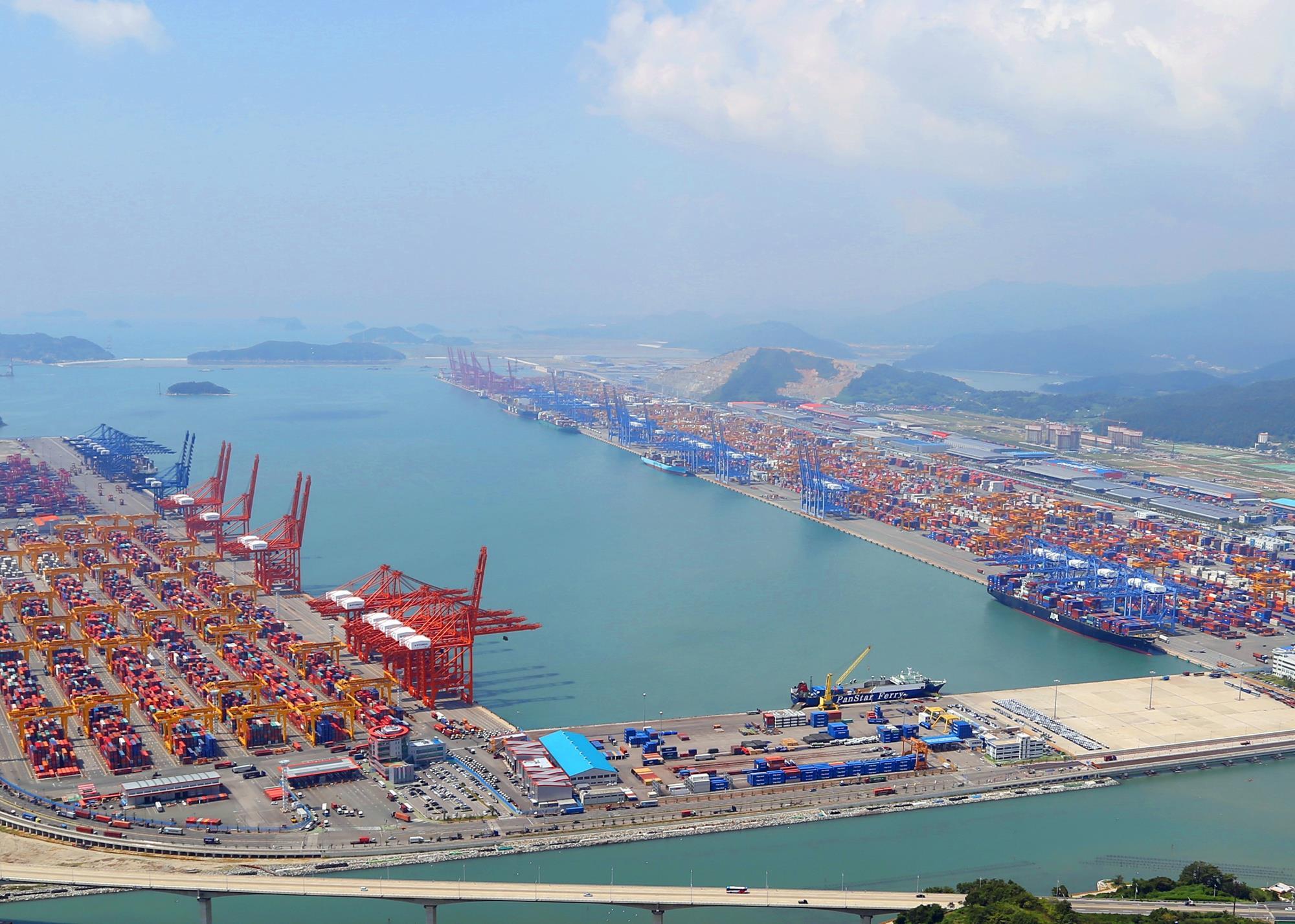
The Port of Busan, located in South Korea, is the largest port in the country and the sixth busiest container port in the world. It serves as a gateway for trade between Korea, China, Japan, and the rest of the world.
Geographic location: The port is situated on the southeastern coast of the Korean Peninsula, near the city of **Busan**. Its location makes it a prime hub for maritime routes between **China, Japan, Southeast Asia, and the Americas**.
Key role in regional trade: As the largest port in South Korea, Busan handles a significant portion of the country’s imports and exports, while also serving as a major **transshipment hub** for Northeast Asia.
Proximity to industrial zones: The port is close to South Korea’s major industrial areas, including **Ulsan** and **Pohang**, which are known for shipbuilding, petrochemicals, and steel manufacturing.
Global ranking: Busan is consistently ranked among the **top 7 busiest container ports in the world**. It is also the largest transshipment port in Northeast Asia.
Throughput: In 2022, the Port of Busan handled **22 million TEUs (Twenty-foot Equivalent Units)**, which represents a significant portion of South Korea's total trade volume.
Expansion and capacity**: The port continues to expand its facilities to meet growing global demand, particularly at the **Busan New Port** area, which is designed to accommodate mega-ships and further increase the port’s capacity.
Key role in regional trade: As the largest port in South Korea, Busan handles a significant portion of the country’s imports and exports, while also serving as a major **transshipment hub** for Northeast Asia.
The port has two main areas:
Busan North Port: The older section, serving general cargo, containers, and bulk commodities. This area is highly congested due to its location within the city.
Busan New Port: Opened to alleviate congestion and handle larger vessels, it is located west of the city. The New Port is equipped with modern deep-water berths and state-of-the-art container terminals.
Key trading partners: The Port of Busan has strong trade relationships with major economies like **China**, **Japan**, **the United States**, and **Europe**.
Main commodities:
Exports: Automobiles, electronics, machinery, petrochemical products, and steel.
Imports: Crude oil, machinery, chemicals, consumer goods, and raw materials for the manufacturing sector.
Crucial to South Korea's economy: The Port of Busan handles over **75% of South Korea's container cargo** and is a key contributor to the country’s export-driven economy.
Job creation: The port directly and indirectly supports hundreds of thousands of jobs in logistics, manufacturing, and related industries.
Global trade hub: Busan’s role as a transshipment hub not only benefits South Korea but also serves shipping lines and cargo owners around the world, connecting major international markets